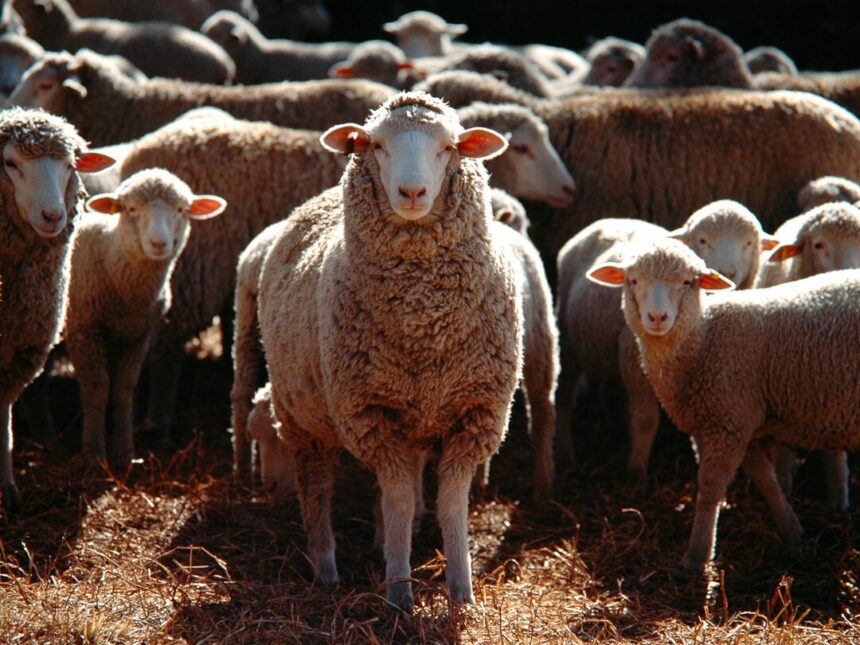Merino sheep are renowned worldwide for their exceptional wool quality, hardiness, and adaptability to various environmental conditions. In South Africa, Merino sheep farming plays a significant role in the agricultural sector, contributing to both wool and meat production. In this article, we’ll delve into ten crucial insights into breeding and farming Merino sheep in South Africa, exploring their unique characteristics, management practices, and the benefits they offer to farmers and the wool industry.
- Historical Background:
Merino sheep have a rich history in South Africa, dating back to the early 19th century when the first Merino sheep arrived in the country. Since then, selective breeding efforts have focused on developing the South African Merino, a breed prized for its fine wool quality and adaptability to local climatic conditions. - Distinctive Characteristics:
South African Merino sheep are characterized by their fine wool, which is renowned for its softness, crimp, and resilience. They possess a robust build, with a dense fleece that provides excellent insulation against both cold and heat, making them well-suited for diverse farming environments. - Adaptability to Environmental Conditions:
Merino sheep are highly adaptable to various environmental conditions, thriving in both arid and temperate climates. Their ability to withstand extreme temperatures and variable weather conditions makes them well-suited for extensive grazing systems prevalent in South Africa. - Wool Production:
Wool production is the primary focus of Merino sheep farming in South Africa. The fine wool produced by Merinos is prized for its quality and versatility, used in the production of high-end textiles, apparel, and luxury goods. South African Merino wool is recognized internationally for its superior crimp, softness, and dye absorption properties. - Breeding Programs and Genetics:
Selective breeding programs have been instrumental in improving Merino genetics in South Africa, with a focus on enhancing wool quality, fleece weight, and reproductive performance. Breeding strategies aim to produce sheep with desirable traits while maintaining genetic diversity and adaptability. - Grazing Management:
Effective grazing management is essential for optimizing Merino sheep productivity and maintaining pasture health. Rotational grazing, careful stocking rates, and pasture rotation help prevent overgrazing, improve forage utilization, and promote sustainable land management practices. - Health and Disease Management:
Proactive health and disease management protocols are essential for ensuring the well-being of Merino sheep flocks. Vaccinations, parasite control, and regular veterinary care help prevent common sheep diseases and maintain flock health and productivity. - Reproduction and Lambing:
Merino sheep are known for their high reproductive efficiency, with ewes typically producing multiple lambs per lambing season. Breeding programs focus on optimizing fertility rates, lamb survival, and growth rates to maximize flock productivity and profitability. - Meat Production:
While wool production is the primary focus of Merino sheep farming, Merino lambs also provide high-quality meat prized for its tenderness and flavor. Merino lamb production offers additional revenue streams for farmers and contributes to the overall profitability of Merino farming operations. - Sustainability and Environmental Stewardship:
Merino sheep farming in South Africa aligns well with sustainable agriculture principles, promoting environmentally friendly practices such as pasture management, water conservation, and biodiversity conservation. By prioritizing land stewardship and ecosystem health, Merino farmers contribute to the long-term sustainability of the agricultural sector.
Breeding and farming Merino sheep in South Africa offer a host of benefits, from premium wool production to high-quality meat and sustainable land management practices. By leveraging the breed’s unique characteristics and implementing sound management practices, Merino farmers play a vital role in the country’s agricultural sector, contributing to economic growth, rural development, and environmental sustainability.
Join 'Farmers Mag' WhatsApp Channel
Get the latest Farming news and tips delivered straight to your WhatsApp
CLICK HERE TO JOIN






